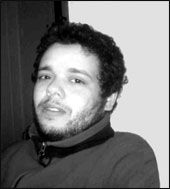The following op-ed was submitted to The Gazette (in Montreal) on December 8, 2011, but was never published.
December 8, 2011
In a summary of the Mohamed Anas Bennis case, Monique Muise incorrectly states that "[f]ive public bodies investigate[d] the incident and rule[d] that [SPVM officer Yannick] Bernier acted in self-defence" and that a coroner's inquiry later came "to the same conclusion" ("High-profile police incidents in Quebec during the past few years", Montreal Gazette, Dec 2, 2011; accessible on-line at here).
It is regrettable and frustrating that the antiquated propaganda previously issued by the Montreal Police Brotherhood pertaining to this case continues to be repeated verbatim.
There is only one body, and not five, that actually investigated the shooting death of Mohamed Anas Bennis by Montreal police officer Yannick Bernier on December 1, 2005: the Quebec City police (SPVQ). All subsequent decisions, presumably referred to in Muise's article, relied exclusively on the initial investigation carried out by the SPVQ. Glossing over such an important fact is misleading and disingenuous.
Grassroots, civil liberties and human rights groups that are opposed to police brutality and impunity have called for light to be shed on the mysterious circumstances surrounding Anas' death for years now. One of the primary reasons informing these calls for transparency and accountability is precisely because we can never expect the truth to come out in situations where the police investigate the police.
If the SPVQ's initial investigation was flawed, then all subsequent decisions that stem from it are clearly going to be unreliable. "Garbage in, garbage out", as the old adage goes. Indeed, André Marin, former director of Ontario's Special Investigations Unit from 1996-98 and current Ombudsman of Ontario, has written insightfully about police investigations of other police: "If the investigation is shoddy, if it has a bias toward a fellow officer, if inconvenient truths are brushed
under the carpet, if involved officers are treated with kid gloves, if difficult questions are avoided, if the focus of the investigation is on the victim, not the officer -- then it doesn't matter if you have King Solomon as the director; the conclusion will likely be flawed" (“Fatally flawed plan”, Winnipeg Free Press, April 22, 2009; accessible on-line here).
There are plenty of reasons to suspect that the SPVQ's investigation was flawed: why did the knife Anas allegedly use to attack Bernier never undergo any form of forensic testing? Why was the knife mentioned by only one civilian witness, and even that only in his second statement to police the day after the incident (yet there was no mention of a knife in his first statement to police the day of the incident itself!)? Were the officers involved in Anas’ killing -- Bernier and Jonathan Roy -- isolated as soon as possible after the incident to ensure that they didn’t contaminate one another before providing their respective statements, as occurs when civilians are suspects in a killing? Why was officer Bernier’s statement dated February 6th, 2006 (ie., more than two months after the incident)? Why were officer Bernier’s injuries only photographed on February 16th, 2006? Perhaps there are answers to these and other questions, but so long as they remain unasked, let alone unanswered, there can be no confidence in the SPVQ investigation.
Meanwhile, it is a travesty of justice that the coroner's inquiry into Anas Bennis' death -- which finally took place in April of this year after the protracted efforts of the Montreal Police Brotherhood and the City of Montreal to have it quashed proved unsuccessful -- intentionally did not scrutinize the SPVQ's investigation. The coroner's inquiry, which had the potential of being comprehensive and relatively impartial, chose to accept the SPVQ's conclusions as empirical evidence. This
approach by the presiding coroner, Catherine Rudel-Tessier, eschewed any and all common sense. The coroner’s inquiry also didn’t address the possible role that racial profiling may have played in Anas’ killing; this, despite the fact that Jonathan Roy was found guilty of five infractions of the police ethics code in June 2010 for an unrelated incident of police brutality against a Black man in 2008, which took place in a shopping mall just blocks from where Anas was shot and killed in Côte-des-Neiges. It is also important to remember that the Bennis family was effectively prevented from participating in the coroner’s inquiry because their legal fees were not covered by the coroner’s office, while the Justice for Anas Coalition’s application to be recognized as an interested party in the inquiry was rejected. As a result of the bungled coroner’s inquiry, which farcically lasted less than two days and essentially regurgitated the SPVQ investigation, the Bennis family and the public are now no closer to understanding what exactly happened that fateful morning as we were six years ago at this time, almost to the day.
The Quebec Minister of Public Security, Robert Dutil, recently proposed Bill 46 to modify the Police Act with respect to the mechanism in place to deal with incidents involving police interventions resulting in death or serious injury. Unfortunately, the proposed legislation completely misses the mark in addressing the deep-rooted and legitimate skepticism and mistrust that prevail in the public consciousness with respect to police investigations of other police forces. A nominal civilian body
with very little binding powers that is expected to loosely oversee police officers investigating their colleagues does not inspire confidence. It is analogous to adding an extra floor to a crumbling house to gloss over its rotting foundations.
So long as the police investigate the police in matters of extreme police violence and abuse of power, then transparency, accountability and the truth will remain elusive. And so long as this remains the status quo, families of civilians killed or injured by the police, as well as the public at large, will continue to demand that the current system be completely overhauled. At minimum, a first step would include a truly independent and fully empowered civilian body that would investigate such incidents. Indeed, nothing less is acceptable.




